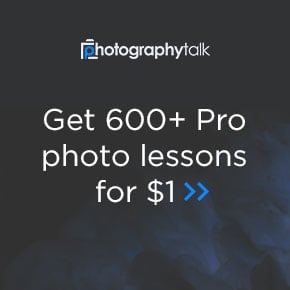- Forum
- Photography and Camera Forum
- Equipment Research, Buying and Using
- Digital Cameras
- Why new photographers should go mirrorless...
Why new photographers should go mirrorless...
-
 Topic Author
Topic Author
- Ted-Purchase
- Newbie
- Followers: 0
-
Points:
346
Post #572893
-

- KCook
- Photo Elder
-
- Canon EOS 50D and Olympus E-P5
- Followers: 1325
- Posts: 5410
-
Points:
32913
-
 Topic Author
Topic Author
- Ted-Purchase
- Newbie
- Followers: 0
-
Points:
346
Post #573106
Sorry the audio is messed up on your device, but please actually watch the video on a working device before you judge it.
-

- KCook
- Photo Elder
-
- Canon EOS 50D and Olympus E-P5
- Followers: 1325
- Posts: 5410
-
Points:
32913
Post #573189
Kelly
-

- garyrhook
- Oh Wise One
-
- Nikon D850, Nikon D750, Panasonic G7K
- Followers: 912
- Posts: 11103
-
Points:
67681
Post #573660
The logic, on the other hand, is not.
It's never a good idea to make an equipment decision based on features. Ever. One should start with what one wishes to accomplish, then research options based on a prioritized list of goals. This video wants to expound on features that may or may not be relevant to any photographer, newbie or otherwise.
Why is in-body IS better? It's not. Stabilization is good, but honestly, folks should learn to shoot without it first, to learn good technique. IS/VR then becomes a tool to allow for more opportunity, which is what it should do.
Weight: whatever. I tell folks to go to a store and hold the camera. Use it. Play with it. The camera you want is the camera you don't want to put down. Mirrorless has little to do with that.
You criticize focus, then mention great AF in Nikon and Canon. What? Did I misunderstand?
Future proof? Perhaps. Probably But that doesn't mean that an SLR body is going to go away any time soon. So the longevity of mirrorless systems has (almost) nothing to do with the future of SLR systems.
Peaking indication for highlights and shadows: that's a good thing. I use focus peaking on my Pany G7, too. But the fact of the matter is that the in-camera light meter (in a DSLR) is only going to have significant issues in high contrast situations. Which makes is it an issue to learn about and deal with. A mirrorless might tell you about the shadows and highlights, but that won't help when your shot requires a larger dynamic range that you just don't have. Again, mirrorless has little to do with that. And it's certainly not an excuse to not learn how to use your camera.
Microfocus adjustments: listening to this one might conclude that this is a significant, pervasive problem. It's not. Yeah, having to make adjustments is a problem, but less of a problem with smaller apertures. Then you discuss the speed at which a camera can lock AF, and that's just conflation. The two have nothing to do with one another.
IMO your approach to these issues is bass-ackwards. Do each of these warrant consideration? Absolutely, yes. Are they compelling reasons for a newbie to choose that type of camera? Only if all they want is a glorified point-and-shoot. Which some do; no argument there. Others want to learn photography, and a lot of those features.... should be ignored.
Disclaimer: I own a Nikon DSLR and a Pany G7. Neither of those impact my choice of when I go out and shoot. I could easily keep the Pany with me at all times; I don't.
I'd like to suggest that you might be serving folks better by discussing these issues as "Factors That Might Impact Your Camera System Purchase Decision." Then presenting them as such.
IMNSHO, of course.
On the video, you should have redone some of those shots. Some of the cuts are jarring.
-

- Tobias-Nielsen
- Newbie
- Followers: 0
-
Points:
250
Post #577759
-

- fmw
- Newbie
- Followers: 12
-
Points:
12122
Post #578511
Either way, the systems can make great or awful images depending on the skill and creativeness of the operator. So the choice really has little to do with resulting photographs. It has to do with the photographic requirements.
- Forum
- Photography and Camera Forum
- Equipment Research, Buying and Using
- Digital Cameras
- Why new photographers should go mirrorless...
Latest Reviews
The Olympus Pen E-P7 is an affordable micro four thirds mirrorless camera with 4K video capabilities, a 20.3MP sensor, and 121 focus points, making it a solid entry-level camera for beginners.
The Panasonic G9 II is a 25.2-megapixel micro four thirds camera with numerous features that make it punch out of its weight class, like 779 AF points, 5.8K video, and weather sealing.
The Fujifilm XT5 is a 40MP mirrorless camera capable of 6.2K video at 30p. With those specs, it’s an ideal choice for photographers needing a camera to pull double duty for imaging and video.
The Canon EOS R100 is an entry-level mirrorless camera introduced in 2023. But just because it’s an entry-level camera doesn’t mean it’s a bare-bones camera. Find out why in this review!
Latest Articles
Upgrade your kit in 2024 with the best intermediate camera on the market! The question is, what camera fits the bill? We’ve got three top options for you to choose from in this buyer’s guide.
The best photography jobs right now are a mix of tried-and-true gigs like wedding photography and new jobs highlighting AI’s capabilities, travel, and videography.
The Olympus Pen E-P7 is an affordable micro four thirds mirrorless camera with 4K video capabilities, a 20.3MP sensor, and 121 focus points, making it a solid entry-level camera for beginners.
Starting a photography business is one thing; sustaining your business over a long period of time is another. Use the tips in this professional photography guide to build something with longevity!
The Panasonic G9 II is a 25.2-megapixel micro four thirds camera with numerous features that make it punch out of its weight class, like 779 AF points, 5.8K video, and weather sealing.
Cinematic photography is an interesting genre that combines photographic and videographic skills along with effective storytelling techniques. The result? Highly impactful images!
Newborn photography requires skill, the right gear, and a lot of patience. This beginner’s guide discusses critical topics that will help you be more prepared for before, during, and after the shoot.
To fill the frame means to expand the footprint of the subject in your shot. Get in close, zoom in, crop the image, or use other techniques to bring the subject to the forefront.














